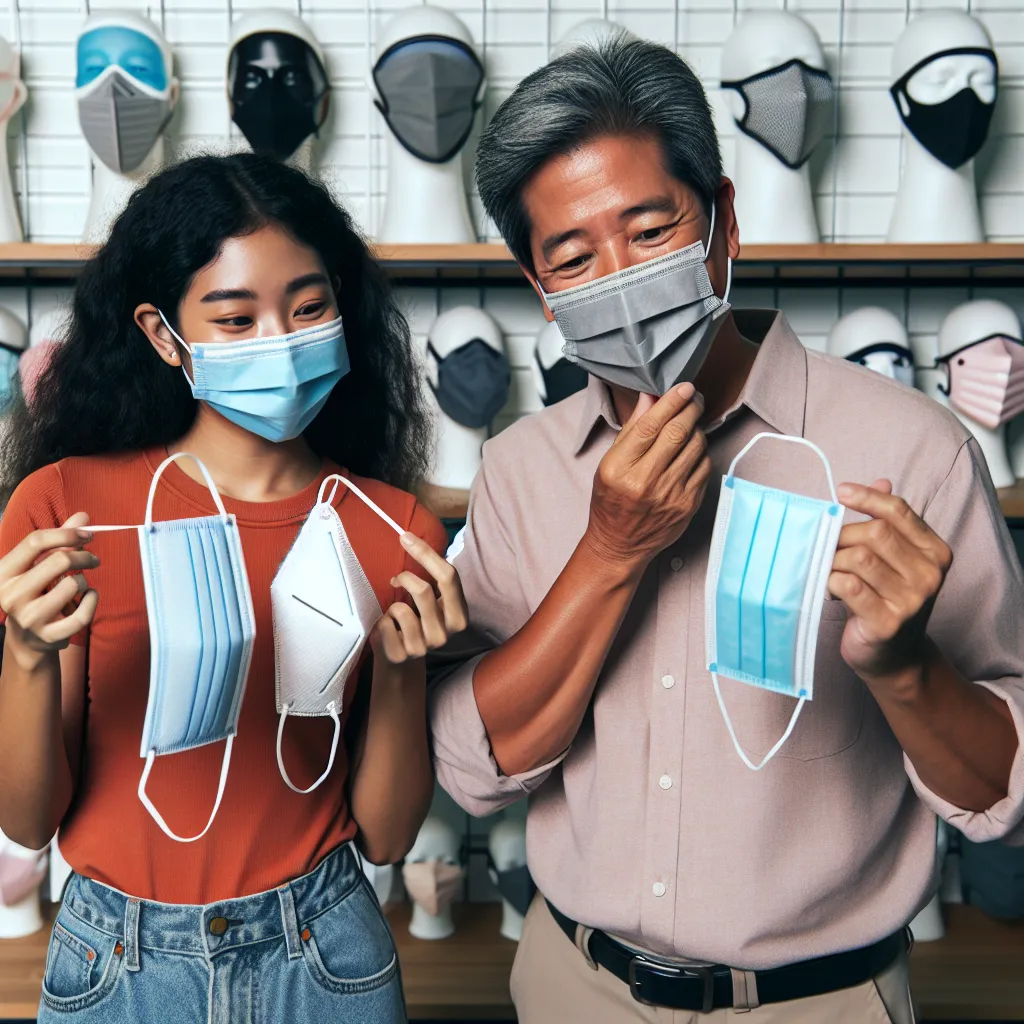
Navigating the World of Face Masks: Choosing the Right Option for You
Understanding Different Types of Face Masks
Understanding the different types of face masks is crucial in navigating the world of personal protective equipment. With various options available, it’s important to choose the right one for your specific needs. Firstly, there are surgical masks, which are loose-fitting and disposable, commonly used in healthcare settings. These are effective in blocking large-particle droplets and splashes but do not provide a tight seal against smaller airborne particles.
Another popular option is the N95 respirator mask, designed to filter out at least 95% of airborne particles. These masks form a tight seal around the nose and mouth, offering high filtration efficiency. They are recommended for healthcare professionals and those working in environments with high levels of airborne particles.
Cloth masks have also gained popularity, often made from multiple layers of fabric and reusable after washing. While they may not offer the same level of filtration as surgical masks or N95 respirators, cloth masks can still provide a barrier against respiratory droplets. It’s essential to ensure a proper fit and regularly wash cloth masks to maintain their effectiveness.
Understanding the distinctions between these different types of face masks is pivotal in selecting the most suitable option for your circumstances. Whether for medical use, day-to-day activities, or specific environments, the right face mask can contribute to personal safety and well-being.
Factors to Consider When Selecting a Face Mask
When it comes to selecting the right face mask, there are several factors to consider in order to ensure both protection and comfort. The first aspect to assess is the level of filtration provided by the mask. For example, N95 masks offer a high level of filtration and are recommended for healthcare workers and those in high-risk environments, while surgical masks provide good protection for everyday use. Another important consideration is the fit of the mask, as it should snugly cover the nose, mouth, and chin without causing discomfort. Additionally, the breathability of the material is crucial to ensure that wearing the mask for extended periods does not become suffocating. Comfort is also a key factor, with adjustable ear loops and a moldable nose bridge contributing to a better wearing experience. Lastly, the reusability and eco-friendliness of the mask should be taken into account, especially for those seeking sustainable options. By carefully evaluating these factors, individuals can navigate the wide array of face masks available and choose the option that best suits their needs.
The Role of Face Masks in Personal Protection
Face masks have become an essential tool in personal protection, especially in the midst of the COVID-19 pandemic. They serve as a physical barrier to prevent the spread of respiratory droplets that may contain infectious particles. By wearing a face mask, individuals can significantly reduce the risk of inhaling or exhaling droplets that may carry viruses or bacteria.
When navigating the world of face masks, it’s important to understand the role they play in safeguarding personal health. Different types of masks, such as N95 respirators, surgical masks, and cloth masks, offer varying levels of protection. N95 respirators are designed to filter out at least 95% of airborne particles and are recommended for healthcare workers and those in high-risk environments. Surgical masks are loose-fitting and primarily used to protect others from the wearer’s respiratory emissions. Cloth masks, while not as effective as medical-grade masks, still provide a level of protection for the wearer and those around them.
Choosing the right face mask involves considering the level of risk in a particular environment, individual health factors, and the mask’s intended use. For instance, individuals with compromised immune systems or underlying health conditions may opt for higher filtration masks for added protection. Additionally, the fit, breathability, and comfort of the mask should also be taken into account to ensure consistent usage and effectiveness.
Ultimately, the role of face masks in personal protection is multi-faceted, encompassing not only the direct protection of the wearer but also the broader community. By selecting the appropriate face mask based on individual needs and circumstances, individuals can contribute to collective efforts in reducing the spread of infectious diseases.



